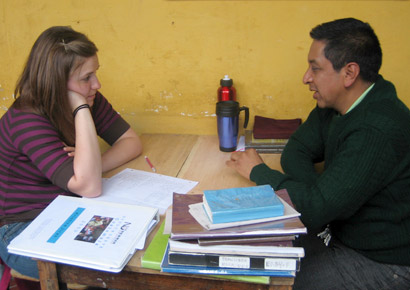Do you have trouble finding the right book for your class? let me give
you some advice about how to search for an appropriate English book according
to the level and age of your class.
In the past, if someone wanted to write a text book for pupils, he could
write and publish it without examining whether the book is suitable for the
target population. The fact that the books were not examined in terms of
content, level of language and cognitive suitability led to confusion about the
teaching methods. In contrast to the past, nowadays the books have to be
approved by The Ministry of Education. If the book has not been approved, it
can't be used in a class.
A complete course book needs to have the whole package that must include
three main parts: student book, workbook and teacher's guide, and it may
include a dictionary, flash cards, short stories and a CD\CD ROM. If a book
package doesn’t have one of the three main parts; it is not a complete course
book.
When you are searching for a book, there are a few things you need to
check. First, check the accuracy of the
content, in terms of English spelling and grammar; you need to see if the
content is suitable for your class level. Then you have to make sure that the
cognitive level and the skill level suits your class level by carefully
scanning the text and questions in the book. Don’t forget that the content and
the language should match. There is an option to use the English Curriculum's
division of stages and levels that appears in each of the course books. We also
need to check which type of English the book uses, UK or USA. Don’t look only
in the teacher's guide; you also have to examine the student book and the
workbook.
There is a wide range of course books; each book has a different
attitude to learning, and you as a teacher need to choose whether you are
teacher or a teacher that believes in developing thinking skills.
In addition to the course books there are supplementary books (they are
also called support books), for example: unseen books, fun books, reading
books, grammar books and coloring books. These books don’t need to be approved
by the Ministry of Education, and we can use them as extra aids for the class.
Now, after you have read this post, and by following all the instructions, you
will find the appropriate course book for your class, but remember- Texts may
have the same meaning but be presented in different ways. Your job is to find
the right textbook.




